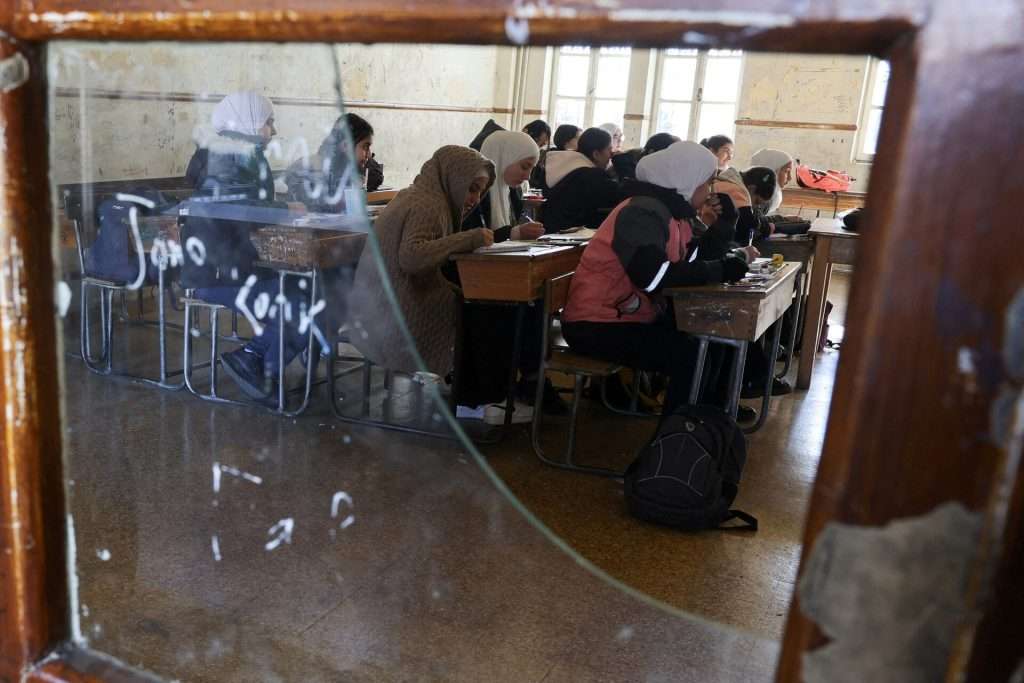Female journalists are being empowered in Syria

Compared to their male counterparts, female journalists face significant challenges on and offline. Last month, to conquer these threats, Arab Reporters for Investigative Journalism (ARIJ) launched a new project to empower women journalists in Syria, International Journalists’ Network reported on July 22nd.
In a bid to empower Syria’s female journalists, ARIJ created the “Syrian Core” project in collaboration with the “Women Who Won the War platform – a media space dedicated to women telling their stories in different ways. The project set out to provide women with investigative journalism skills, in addition to a safe professional environment for in-depth reporting.
Syrian women became vital voices for truth during the Syrian uprising and throughout Syria’s transitional phase. Since 2011, women in Syria have been instrumental in communicating the realities of events to both Arab and international audiences.
In a society that is unfamiliar with seeing Syrian women as field reporters, women journalists were working under some of the most severe security challenges, Ynet News reported.
Journalist Sanaa Al-Ali explained that she covered overwhelming events leading up to the overthrow of former Syrian president Bashar al-Assad. While working as a reporter, Al-Ali explained that she was among those displaced by the conflict in 2012.
“In Idlib, I had neither a house, furniture, nor a source of livelihood with my three children. It was necessary to take a clear stand as the regime declared its war on us in every way – from intimidation to detention, to sporadic bombings and deploying its army across towns and cities,” Al-Ali said. “I found myself as an activist journalist tasked with conveying the image, voice and pain.”
The most common violations against female journalists in Syria include arrest, detention and kidnapping. While working as a news reporter under Assad’s regime, 26-year-old Hanin Gibran was imprisoned in one of the country’s most notorious prisons – Mazzeh air base in Damascus. According to Reporters Without Borders, not only was Gibran tortured and deprived of food, but she was also subjected to corporal punishment and beaten until she was “about to die”.
Gibran received blood transfusions while in captivity, due to a serious haemorrhage caused by the beatings.
“The conditions of confinement were horrible for journalists. And for a woman, they were much worse than for men,” Gibran said. “The sexual insults from fellow inmates and inspectors hurt me both psychologically and morally, much more than the beatings and torture.”
Salwa Abdul Rahman was also working as a journalist in Aleppo during the uprising. Before being displaced by the conflict, Rahman’s reporting was limited to “reporting facts and documenting events”.
However, after her husband died at the start of 2015, Rahman relocated and expanded her journalism career. “Working on the ground provides broader and greater experiences,” she said. “Women’s work in field journalism in Syria is inherently challenging due to the complexities of the Syrian scene, including bombing, arrest, kidnapping and numerous restrictions.”
“However, I, like many Syrian women, challenged these circumstances and persisted in writing and working until this regime fell.” Rahman added.
By the end of 2015, women made up a staggering 54% of Syria’s radio sector and 35% of the independent print media workforce, the Tahir Institute for Middle East Policy stated. While some figures suggest significant female participation, only 4% of senior journalists for new media outlets were women.
Since Assad’s flee to Russia, media training courses empowering female journalists have started to rapidly emerge across Syria. Syrian female journalists have continued to dominate the number of attendees.
International Journalists’ Network, Ynet News, The Syrian Network for Human Rights, The Tahrir Institute For Middle East Policy, Maghrebi.org
Want to chase the pulse of North Africa?
Subscribe to receive our FREE weekly PDF magazine














